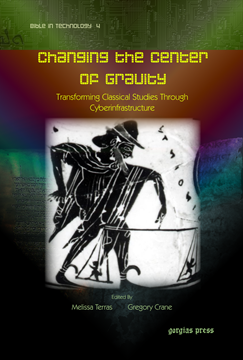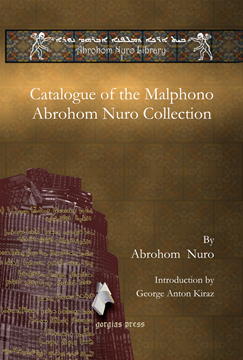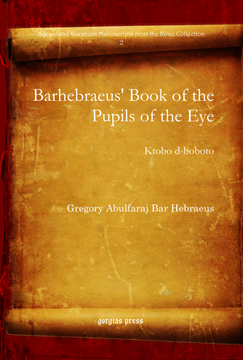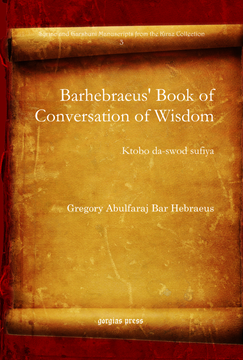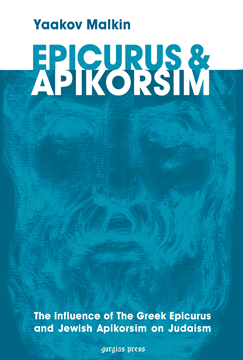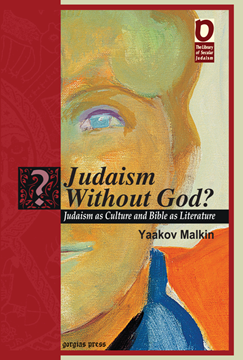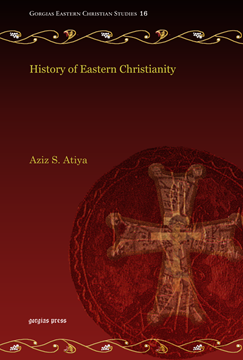Changing the Center of Gravity
Transforming Classical Studies Through Cyberinfrastructure
Edited by Melissa Terras & Gregory Crane
ISBN: 978-1-60724-881-1
The essays in this volume reflect a new generation of classicists hunting for new methods to understand and to disseminate ancient texts, both to increase the body of published information about classical Greek and Latin and also to encourage these languages to play an increased role in the intellectual life of humanity. In discussing areas as diverse as teaching, citation, criticism, collaboration, epigraphy, geography, grammar, lexicography, and digitization, this volume demonstrates the new scope and potential in Digital Classics research.
$202.00 (USD) $121.20 (USD)
Catalogue of the Malphono Abrohom Nuro Collection
By Abrohom Nuro; Introduction by George Anton Kiraz
Series: Abrohom Nuro Library 1
ISBN: 978-1-60724-332-8
The Abrohom Nuro library is arguably the richest private collection of Syriac material, especially containing rare titles published in the Middle East in the 1800s and early 1900s. Nuro presents here a checklist of the collection.
$141.00 (USD) $84.60 (USD)
The Paradise of Eden
By Abdisho of Nisibis; Edited by Joseph E. Y. De Kelaita
Series: Abrohom Nuro Library 2
ISBN: 978-1-60724-333-5
Abdisho bar Brikha (d. 1318) was a prominent East Syriac writer. While many of his works did not survive, his The Paradise of Eden, a collection of theological poetry, reached us. This edition is based on the rare Urmia (1916) and Mosul (1928) text editions by J. de Kelaita.
$173.00 (USD) $103.80 (USD)
Bar Hebraeus' Poem on Divine Wisdom
Carmen de divina sapientia, auctore celeberrimo viro Abulpharagio Gregorio filio Haronis Bar-Hebraeo
Edited by Ioannis Notayn Darauni
Series: Abrohom Nuro Library 3
ISBN: 978-1-60724-334-2
This is a rare edition of Barhebraeus’ poem “On Divine Wisdom” by Ioannes Notayn Darauni (Yūḥannā Nuṭayn al-Dar‘ūnī) was first published in 1880. The Syriac text of the poem is accompanied by detailed footnotes giving Arabic glosses for the difficult words.
$138.00 (USD) $82.80 (USD)
Barhebraeus' Book of the Pupils of the Eye
Ktobo d-boboto
ISBN: 978-1-60724-335-9
The Book of the Pupils of the Eye is a short compendium of Aristotelian logic by Barhebraeus. This facsimile edition reproduces a manuscript of the work copied by Ya‘qub b. Buṭrus Sākā in 1896. Ignatius Ephrem Barṣaum made corrections to the text on the basis of another manuscript in 1904.
$195.00 (USD) $117.00 (USD)
Barhebraeus' Book of Conversation of Wisdom
Ktobo da-swod sufiya
ISBN: 978-1-60724-336-6
The Book of Conversation of Wisdom is a compendium of Aristotelian philosophy by Barhebraeus in four chapters: logic, the natural sciences, metaphysics and religious matters. This facsimile edition reproduces a manuscript transcribed in 1902.
$142.00 (USD) $85.20 (USD)
Arabic Sources for Syriac Studies
By George Awwad
Series: Kiraz References Archive 5
ISBN: 978-1-60724-337-3
This comprehensive reference work provides bibliographical and manuscript data to Arabic works in the field of Syriac studies, both published and unpublished. The book contains over 2,000 subject and title entries.
$223.00 (USD) $133.80 (USD)
Epicurus & Apikorsim
The Influence of The Greek Epicurus and Jewish Apikorsim on Judaism
ISBN: 978-1-60724-344-1
This book describes the influence of Epicurus on Judaism. Judaism is the only national culture which has adopted the name of this Greek philosopher, using it as a term designating Jews who believe in freedom to choose their way of life, without obligation to obey religious precepts. Today, most Jews live as "Apikorsim". The heresy implicit in the denial of the existence of a personal God includes a denial of belief in life after death. Apikorsim believe that the purpose of life and of morality is found in striving for happiness.
$126.00 (USD) $75.60 (USD)
Judaism Without God?
Judaism as Culture, Bible as Literature
ISBN: 978-1-60724-341-0
The humanistic, non-religious approach of this book presents Judaism as the Culture of the Jewish People and God as a literary figure created by the authors of the Bible. This book defines key concepts in the discourse of Judaism as Culture. It offers a concise version of the history of pluralism in Judaism during the biblical era, the Hellenistic period, the influence of the Talmudic "culture of dispute" and the asking of new questions, the influence of the secularization process on Judaism, the assimilation of Jews in foreign cultures, and the formation of Israeli culture.
$166.00 (USD) $99.60 (USD)
History of Eastern Christianity
Series: Gorgias Eastern Christian Studies 16
ISBN: 978-1-60724-343-4
This book is a classic in the history of the Oriental Churches, which are sometimes portrayed as heretical in general church history books, if mentioned at all. Written by a Copt, it portrays the history of the faith of these non-Chalcedonian Churches with first-hand knowledge of their traditions. The author covers Alexandrine Christianity (the Copts and the Ethiopians), the Church of Antioch (Syriac Orthodox), the “Nestorian” Church of the East, the Armenian Church, the St. Thomas Christians of South India, the Maronite Church, as well as the Vanished Churches of Carthage, Pentapolis, and Nubia.
$230.00 (USD) $138.00 (USD)
